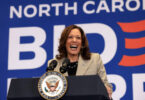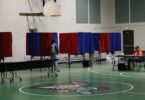By Marissa Wu
BU News Service
This article was originally published in the Cambridge Chronicle.
The Civic Unity Committee, a subcommittee of the City Council of Cambridge has decided to tackle the diversity, or lack thereof, concerned the city’s boards and commissions might not reflect its diversity.
At a March 27 meeting, the Civic Unity Committee – led by Councilor E. Denise Simmons – looked into the makeup of boards and commissions with the goal of devising strategies that would encourage broader representation.
Noting the committee needed to “discuss and explore issues around fairness, inclusivity, tolerance and understanding,” Simmons said developing a survey for all boards and commissions will be the first step.
According to the 2010 U.S. Census, about two-thirds of Cambridge’s population of some 110,000 people self-identifies as “white alone,” a number that has decreased over the years. The 1990 Census reported the number at 75 percent and in 2000, it was 68 percent.
City Hall has demographic data on its employees. For example, as of last fall, the staff was 35 percent female and and 71 percent white but the city has yet to compile statistics on the volunteers sitting on the boards and commissions
‘Representatives of the people’
At the meeting, committee members and speakers also highlighted the importance of diversity and taking into account all factors making a community diverse, including education, age, religion, income and gender.
Cheryl-Ann Pizza-Zeoli, an Inman Square resident and board member of the Affordable Housing Trust, stressed the importance of recruiting people from the low-income tenant community.
“It’s hard to be alone,” she told the committee. “It’s tough no matter what you do but it’s very hard to be alone and to feel that you have the weight of representing every poor person.”
Betsy Allen, director of the city’s Equity and Inclusion Department, said it was a question of democratic representation.
“We should start out with the premise that [the boards and commissions] should be diverse,” she told the committee. “The boards are the representatives of the people. When we don’t have a diverse board, there’s a voice that’s not being heard.”
She proffered the idea of an open house-type event allowing residents to learn about the city’s boards and commissions and how they could get involved. While it would not address any barriers to entry, it may spark interest.
Another idea came from committee member and Councilor Alanna Mallon. She suggested Cambridge try setting up a “citizens’ academy,” based on what is done in other communities, like Lexington, which would allow people to learn about the different aspects of local government and find ways to be involved. The goal wouldn’t necessarily be to place people on boards and commissions, she said, but it would help start the conversation.
Possible stipends?
The committee also considered the possible barriers people face such as socioeconomic status, age and family obligations, and even discussed the idea of stipends.
Gary Mellon, a Riverside resident who attended the meeting, said he agreed and pointed out a stipend may obligate members to show up to meetings while also attracting a diverse group.
“A stipend would definitely draw more applicants from all walks,” Mellon told the committee. “They are not city employees but they are well worth it.”
After the meeting, Simmons said she hoped by June the committee would have recommendations to review or adopt, noting she had heard “a lot of good ideas.”
“We [will] figure out what works best for us,” she said.
The Civic Unity Committee was created in the 1990s by a City Council order and was meant to be a successor to the Office of Civic Unity, which was active from 1945 to 1992, when it was defunded, according to Simmons. Since its inception, the committee has addressed topics such as cultivating a culturally competent workforce, creating the Citizen’s Civic Unity Committee and discussing issues of discrimination in the city’s workforce. The committee has councilors Jan Devereux, Sumbul Siddiqui, and Timothy Toomey.
Do you think that Cambridge city boards and committees are diverse enough? Do you serve, or want to serve, on one? How do you think the city can ensure that its citizens are fairly represented and make it easier for them to be involved? For more information on the city’s boards and commissions, descriptions can be found cambridgema.gov/boardsandcommissionsdirectory/boardsandcommissionsdirectory.





